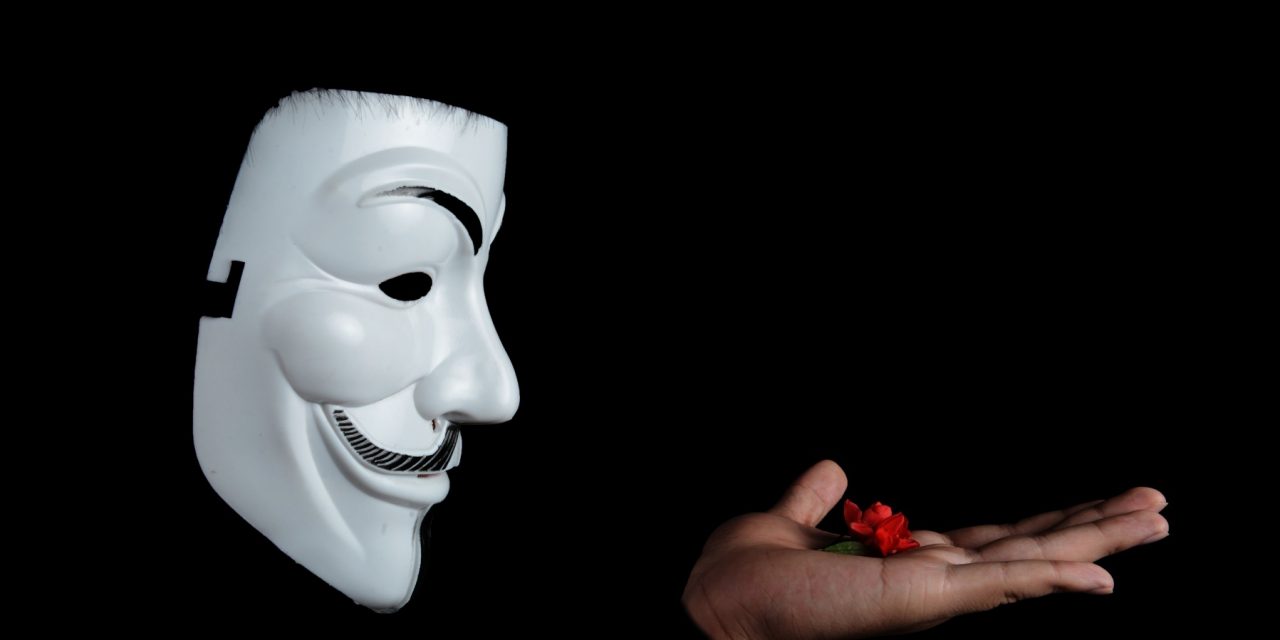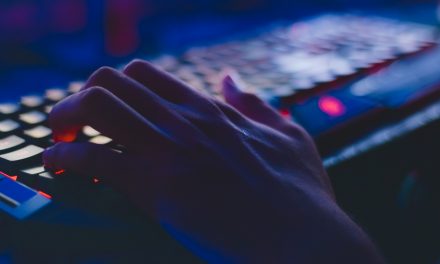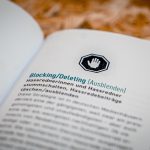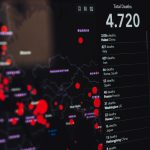 Online anonymity as a guaranty to the right to life – A case study of Pakistan (Part 2)
Online anonymity as a guaranty to the right to life – A case study of Pakistan (Part 2)
Sohail Aftab, Universität Hamburg
A victim of identification
Qandeel Baloch (born 1990) was a self-made social media celebrity who aggressively used social media for her publicity without any external help from a sponsor, a producer or an advertising agency. In a short period of time she succeeded to attract thousands of followers on Twitter, Facebook and YouTube. In her case, she was all in one- a camerawoman, a director and a script writer for her pictures and videos. She was doing all this with the help of a smartphone tied to a selfie-stick.
For the first time in December 2013, she came to the lime light was due to her participation in the Pakistani version of Idol reality singing competition show[1], broadcasted on a private television channel where she was literally pushed out of the show by the judges due to her ‘coarse’ voice. The following years remained more eventful when she remained in the headlines of NEWS due to various controversies. Her pictures with religio-political leaders, her dressing style that was dubbed as ‘vulgar’ by the media and selfie-videos caused occasional stirs in the local media.
In June, 2016 she orchestrated a relatively bigger storm in the electronic media when she posted the video and pics of her meeting with prominent religious figure, named Mufti Qawi, who had an official position in the federal government.[2] Consequently, Mufti Qawi was removed from the position. During this period, she was everywhere in the electronic and social media news.[3]
Perhaps she was on the peak of her modeling and acting career at that point when a local newspaper of the area she belonged published a copy of her passport, her real name (Fouzia Azeem) and many intimate details regarding her past marriage, subsequent divorce, and pictures of minor son in the custody of her former husband. Like her other controversial presence in the national media, this news also flashed for hours in the social and electronic media. It is pertinent to note that the intimate details belonged to the period when she was an ordinary girl and not a celebrity. She used a fake identity because she was aware of the consequences of remaining in the lime light beyond certain limits -the ‘limits’ which she had already crossed.
The disclosure of her actual identity drew immense psychological impact upon her life. She remained no more a ‘symbol of bravery’ and started worrying about her safety. She not only implored for her safety on the television interviews but had also requested formally to the home department for ensuring her security.
Not a full month had passed after the revelation that the TV channels were giving the breaking news of her murder committed by real brother[4]. Her brother surrendered himself to the police and confessed that he had strangled her to death as she was a ‘disgrace’ to the family. The Guardian reported that the brother had strangled her to death “after being taunted by his friends over her behavior”.[5]
The murder of Qandeel Baloch caused a storm in the local and international media where some quarters praised her bold stature while others highlighted the ‘misogynistic value system’. Similarly, media also explored that connection of the murder with the disclosures of her actual identity.[6] As a matter of fact, the immediate cause was depriving her of her anonymous personality and disguised identity that she thought was essential for the protection of her life. On the other hand, the journalist who published her passport and personal data acknowledged that he had no idea about the consequences.[7]
The Blasphemy Slur: ‘A License to Kill’ in Pakistan
The law of blasphemy in Pakistan cannot be justified on the ground of its relation with hate speech laws prevailing in most of the jurisdictions of the world. Unlike hate speech laws which promote freedom of expression, blasphemy law has a chilling effect on the freedom of speech. The blasphemy law of Pakistan has a controversial role in the shape of radicalizing the society through promoting and encouraging curbs on the freedom of expression. It has been a potential tool on the basis of which non-state actors justify their vigilantism which usually escalates to the level of mob-justice.[8] In January 2011, Salman Taseer, who was the governor of the largest province of Pakistan, was gunned down by his own security guard who was a police officer. The only reason behind his murder was his criticism of the blasphemy. He used to highlight the structural and procedural defects in the law that have made it prone to practical abuse. “They provide opening and cover to religious zealots and vigilantes as well as those wanting to settle personal scores through the coercion of law, as well as create serious doubts about the future of free speech in the country”, very aptly conclude Siddique and Hayat.[9]
Part XV of the Pakistan Penal Code deals with the offences relating to religion. the offences include injuring or defiling place of worship (Section 295), malicious acts intended to outrage religious feelings (Section 195A), defiling of Holy Quran (Section 295B), use of derogatory remarks in respect of the Holy Prophet (section 295C), disturbing religious assemble (Section 296), trespassing on burial places (Section 297), Uttering words to wound religious feelings (Section 298), Use of derogatory remarks in respect of holy personages (Section 298A), Misuse of epithets, descriptions and titles etc. reserved for certain hole personages or places (Section 298 B), Person of Qadiani group, etc., calling himself a Muslim or preaching or propagating his faith (Section 298C). The punishment provided for these offences range from two years imprisonment to life imprisonment as well as, in case of Section 295C, the punishment is death sentence.
The level of sensitivity towards the blasphemous allegations is so high that people usually resort to physical force rather than to follow legal course of reporting the matter to police under the relevant penal provisions. In April this year, a journalism student named Mashal Khan was lynched by frenzied mob inside a public sector university. The mob was comprised upon university students of different disciplines. The charges levelled against Mashal Khan were related to posting ‘blasphemous’ content on his Facebook page. The mobile video footage broadcasted through the national, international and social media was depressing for every sensible person.
The Chief Justice of Pakistan took a suo moto notice of the incident and assigned the probe to a joint investigation team (JIT) of as many as thirteen officials belonging to various departments. The report of the JIT confirmed that no blasphemous content was found on either his Facebook or Twitter account. While the lynching was the result of a planned strategy of the student political body and university administration as Mashal Khan has talked to the media regarding irregularities of various nature rampant in the university.[10] Moreover, he had mentioned “humanist” along with his name and had many such posts that contained very rational and liberal worldview. Even after his murder, some people hold the point of view that his way of thinking was contradictory to Islamic approach. Even the religious leader (Imam) refused to perform the funeral ritual and it was announced through the loudspeakers of the mosques that nobody should attend the funeral. Recently, his father has requested the Supreme Court of Pakistan to provide security to his family as they are still feeling threatened by the religious zealots and opponents.[11]
The whole blasphemy scenario in Pakistan becomes very much clear as the said incident is not a rare public reaction. The peculiar social circumstances impose an absolute prohibition on the free speech no matter how far or less it is linked with the subject of religion. For all practical purpose, it can be dubbed as a blasphemy to discuss a man-made legislation which is conceived by a military ruler and which is constantly abused by individuals to set their scores with the accused. People have been taken to task prior of being heard or probed. In Pakistan, it becomes difficult for a person accused of blasphemy to find a lawyer for court representation due to the fear of public reaction. This situation permits only the kind of expression which conforms to the societal expectations. Anonymous speech, therefore, remains the only choice to avoid public outcry.
The tale of missing bloggers
The problem of enforced disappearances in Pakistan is a matter of concern to national and international human rights organizations. Although the number of missing people is much high in the politically troubled areas like Baluchistan province, however, it is a nationwide phenomenon according to the International Commission of Jurists report.[12] In the year of 2016, 728 persons are reportedly ‘disappeared’.[13] The families of these missing people allege the security agencies for the abduction of these people. The indolent response of the state institutions aimed at the enforcement of fundamental rights shows that the practice of forceful disappearance has assumed a general legitimacy to oppress the dissident voices and criticism. Due to the clout of civil and military regime, media has adopted a self-censorship in the coverage of issues that are regarded as politically sensitive.
In such circumstances, citizen journalism and social media play an important role to disseminate impartial views and highlight human rights issues. The number of social media users is rapidly increasing as in 2015, the estimated number of social media users was17.3 million[14] while currently, only Facebook has 33 million[15] user accounts in Pakistan.
The government in a bid to impose speech restrictions on the social media is adopting various legal and extralegal measures. On the one hand it is actively in contact with Facebook to retrieve users’ data and block certain accounts[16], while on the other hand, the users are detected and directly persecuted through threats and intimidations. In January this year, four bloggers and social media activists mysteriously disappeared. Among them, Salmand Haider is a university professor and outspoken human rights while Waqas Goraya is a freelance journalist. Both of them are popular for using cyber space highlighting various social and political issues like military operations, blasphemy laws and the religious minorities’ rights. Although they were freed after a weeklong captivity, yet the incident caused chilling effects on the social media users and freedom of online speech.[17]
In a latest development, the Federal Minister for Interior Affairs met with Facebook Vice President for Global Policy and urged to end ‘fake’ accounts. Joel Kaplan, Facebook VP has reportedly assented to the demand. [18] The compulsory disclosure of actual identity on Facebook would prove to be another blow to the freedom of online expression in Pakistan.
Concluding remarks:
The examples presented above explain that the social and political circumstances do not always favor the exercise of fundamental rights. Whether it is the so-called honor-killing of Qandeel Baloch for her bold expression, the public lynching of Mashal Khan, accused of Blasphemous speech on the Facebook and also the abduction of bloggers reveal that a minute limelight can result into a serious threat to the security of life. The chances of physical expression through protest and public speaking are even grimmer. However, social media in the form of Facebook, Twitter and blogging provide an opportunity for the progressive and democratic people to connect and discourses regarding socio-political and institutional reforms. The protection of user data and the respect for anonymity of online communication would provide a shield to such debates. Otherwise, no meaningful public debate can ever spout of the subjects feel threatened that their speech can entail negative consequences. Any kind of across the board unmasking exercise would not only prove detrimental to freedom of expression but it would also result into a serious obstruction to the overall democratization process of Pakistani society and the state institutions.
[1] The format of the show is similar to many other Idols e.g. American Idol or Deutschland sucht den Superstar.
[2] Details of the meeting can be read at: https://images.dawn.com/news/1175672.
[3] https://www.samaa.tv/social-buzz/2016/06/qandeel-baloch-selfies-with-mufti-qavi-go-viral/.
[4] She was killed during the night of 15 July, 2016.
[5] https://www.theguardian.com/world/2016/jul/28/pakistani-model-qandeel-baloch-killed-by-brother-after-friends-taunts-mother.
[6] See for example: 1) https://www.thequint.com/world/2016/07/18/qandeel-baloch-honour-killing-we-killed-qandeel-baloch-identity-exposed-multan-pakistan-criminal-code, 2) Special follow up report on the issue, titled “Did the media kll Qandeel Baloch”, available at: https://www.dawn.com/news/1275990 and 3) News analysis, titled: “Revealing Qandeel’s real identity put her life at risk”, available at: https://tribune.com.pk/story/1143410/sharing-blame-revealing-qandeels-real-identity-put-life-risk/.
[7] For details: BBC NEWS report titled, “The naming and shaming of a sex symbol” at: http://www.bbc.com/news/av/magazine-37720690/the-naming-and-shaming-of-a-sex-symbol. The documentary is also available in three parts at YouTube: https://www.youtube.com/watch?v=e2JQXfeTMBg.
[8] US State Department report on religious freedom in the country in 2015. Its Executive Summary can be found at: https://www.state.gov/documents/organization/256199.pdf.
[9] Siddique/Hayat „Unholy Speech and Holy Laws: Blasphemy Laws in Pakistan-Controversial Origins, Design Defects, and Free Speech Implications“, Minn. J. Int’l L. 17 (2008), 384.
[10] https://tribune.com.pk/story/1427069/plot-get-rid-mashal-khan-hatched-month-murder-concludes-jit/. Also see https://www.dawn.com/news/1327151.
[11] http://dailytimes.com.pk/islamabad/18-May-17/mashals-father-requests-supreme-court-to-transfer-trial-to-islamabad.
[12] https://www.icj.org/enforced-disappearances-in-pakistan-un-statement/.
[13] http://hrcp-web.org/hrcpweb/wp-content/uploads/2017/05/State-of-Human-Rights-in-2016.pdf.
[14] http://ethicaljournalismnetwork.org/pakistan-free-speech.
[15] https://www.dawn.com/news/1343822/facebook-vp-nisar-discuss-removal-of-blasphemous-content.
[16] http://digitalrightsfoundation.pk/2017/04/.
[17] For instance, Waqas Goraya has left Pakistan and now living Netherlands. He shared his experience with DW: http://www.dw.com/en/pakistani-activist-waqas-goraya-sharing-experiences-vital-for-activists/av-39352252.
[18] https://www.dawn.com/news/1343822/facebook-vp-nisar-discuss-removal-of-blasphemous-content.












